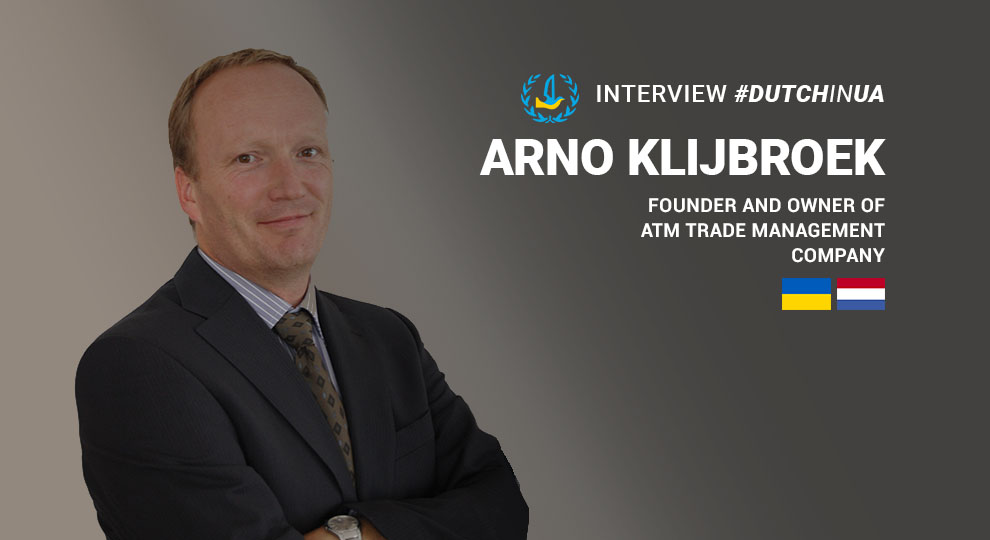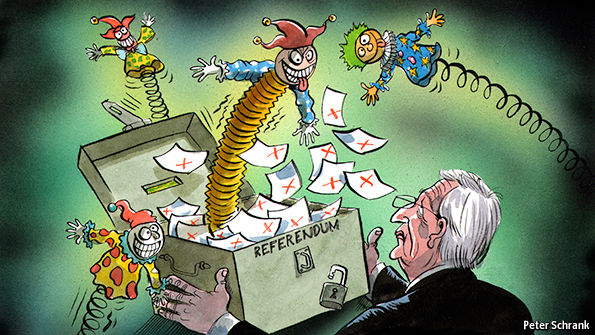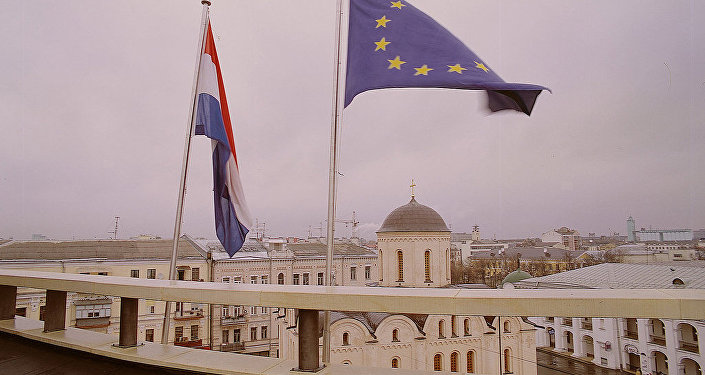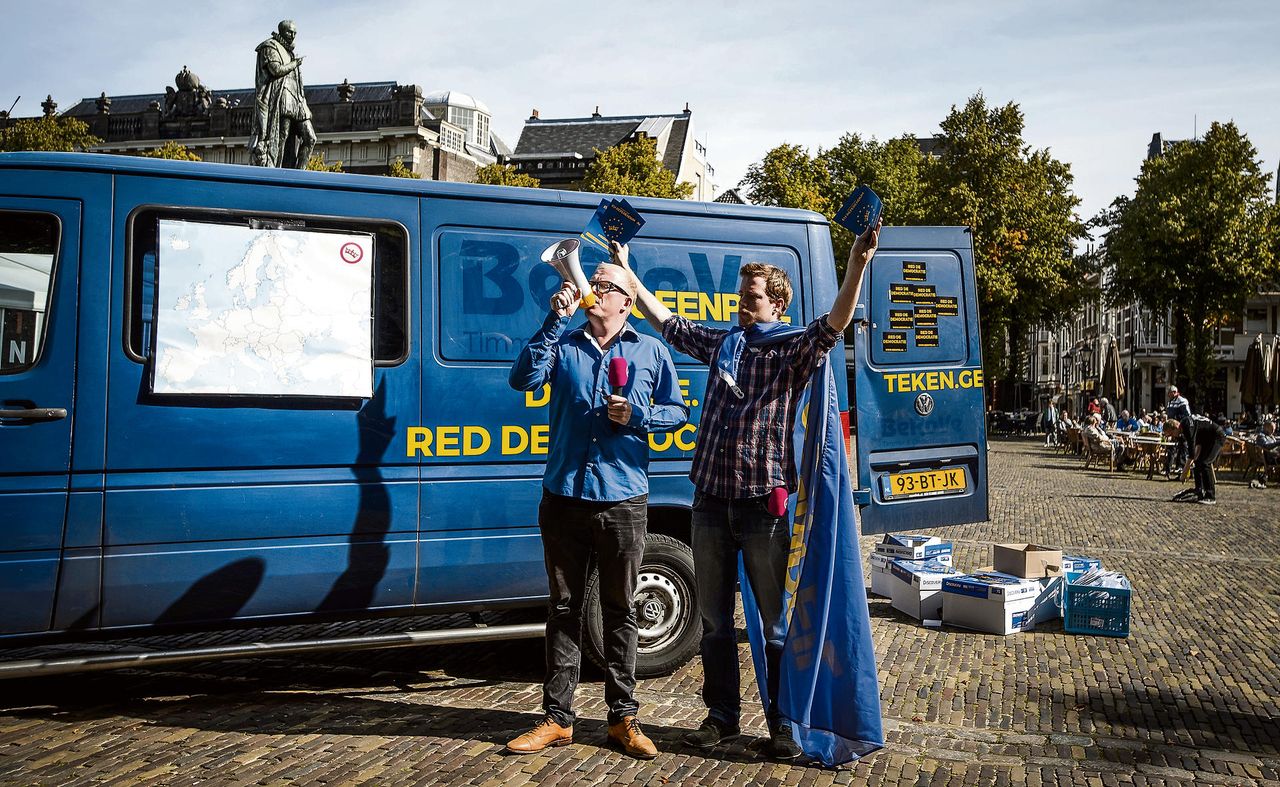It was the delay of the Association agreement with the EU by ex-president Yanukovych in November 2013 that triggered the Euromaidan Revolution. Two years later, a referendum scheduled to take place in the Netherlands could put Ukraine’s eurointegration prospects at stake once again.
All 28 EU countries have ratified the association agreement; 23 of them have completed the whole procedure of ratification, including the Netherlands, which ratified the agreement on July 2015. However, the procedure of ratification has been paused until an advisory referendum about the association agreement will be held in the country on April 6, 2016.
Read more: EU-Ukraine Association Agreement supported by 87% of MPs | Interactive map
Who is holding the referendum
The campaign to have a consultative referendum was started by the controversial satirical blog GreenStijl, which was launched by the GeenPeil group, Burgercomite EU activists group, and eurosceptical think tank Forum voor Democratie. This idea was also supported by Dutch Prime Minister Mark Rutte as an example of democracy. The campaign lasted during six weeks at the www.geenstijl.nl website. The referendum’s organizers collected 451 663 signatures in total, after which the Election Council of Netherlands announced that it would take place.
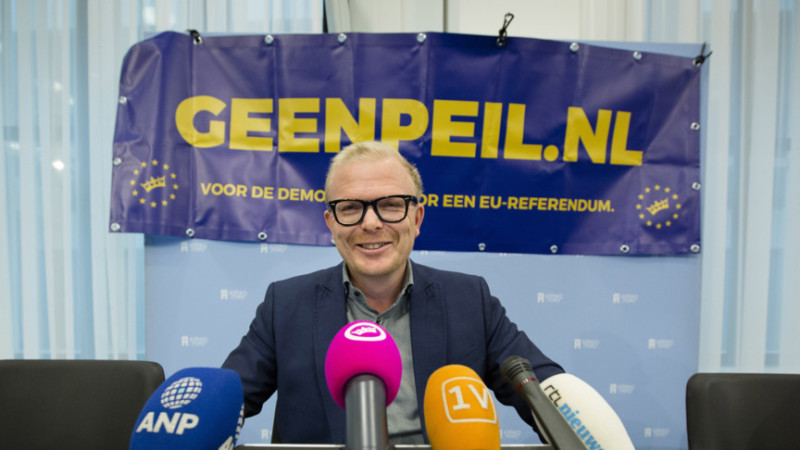
What consequences will the referendum have
According to unofficial information from Dutch political sources, public opinion studies show that 45% of citizens are ready to participate in the referendum. Moreover, 56% of them are going to say “No” to the ratification of the association agreement with Ukraine.
It will have an advisory, meaning that its decision is not mandatory. But in case 30% of Dutch citizens show up at the referendum, and at least 50% of them vote “No,” the Parliament will be forced to review the association agreement. There are indicators that there might be a parliamentary majority that would vote against the Association agreement in the second vote – the Dutch Labor Party PvdA and Christian-Democratic Appeal CDA have announced that they will respect the outcome of the referendum. There is so far no guarantee that the outcome of the referendum will have no consequences.
Voting is “not about Ukraine” but about Euroscepticism
The referendum originated from “a strange combination of right-wing politicians and socialists, who happen to share the hesitations against the growing influence of Europe,” according to Professor of Soviet and Post-Soviet Studies Robert van Voren. According to him, most Dutch citizens know little if anything about Ukraine.
Moreover, they don’t have good reasons for supporting the Association agreement.
Information campaigns around EU Association agreements have traditionally focused on communicating benefits of EU integration to the countries that were going to be integrating. But the EU has rarely communicated the benefits of its expansion to existing EU states. Perhaps that is one of the reasons for sceptical attitudes shown by EU countries to association agreements with other countries. In this particular case Dutch citizens just do not see what they will win from the ratification of the association agreement with Ukraine. Moreover, opponents of the agreement say that they do not want to see Ukraine in EU, naming corruption, the necessity to prove commitment to European values among the first reasons.
This is the first misperception – the Association agreement ratification does not give any guarantees to Ukraine joining the EU. What it does provide is wide opportunities for cooperation, namely in the economical sphere. For example, it will be easier for Dutch traders to reach the Ukrainian market, and easier for Ukraine to export goods into the Netherlands. Dutch entrepreneurs will have more possibilities to work in Ukraine.
Read also: With Dutch referendum, Ukraine becomes a tool of populist politics
Public opinion of Ukraine in the Netherlands doesn’t play into Ukraine’s favor
A recent public opinion poll carried out by the Ukrainian Institute of World Policy gave some insight into the ease of gathering the 450 000 signatures necessary for initiating the referendum: out of the eight EU countries that were included into the poll, the Netherlands were the most sceptical about Ukraine’s European prospects and knew the least about Ukraine, mainly associating it with the MH17 catastrophe, Russia, and poverty. Almost 47% of Dutch citizens could not give an answer as to why Ukraine should join the EU in the future. Also they are not too enthusiastic about visa liberalization with Ukraine.
Local activists are trying to turn the tide
To motivate Dutch citizens to say ‘Yes’ at the referendum, Ukraine needs a strong voice of support in Netherlands, namely a wide information campaign explaining what the agreement is and how would the Dutch people benefit from it. One of the voices of support is the Ukrainian diaspora in Netherlands, whose active representatives already do a lot to support their native country, as well as Dutch activists who support Ukraine.
One of the first steps in this direction has been made by a group of activists who created a website dedicated to the referendum, which already has a significant amount of views due to local media coverage. It gives information about the benefits of association agreement with Ukraine for Netherlands as well as about Ukraine and changes that are taking place there.
“Eurosceptics try to explain that this referendum is about the European Union and not about Ukraine. We try to stress that it actually is about Ukraine and about economic cooperation with the country, and not only Ukraine needs the association agreement, but Netherlands can benefit from it as well,” said Ukrainian activist Oleksandr Snidalov, who is one of the creators of the website and informational campaign. Speaking on air of Hromadske TV, he said that the Ukrainian leadership underestimates the danger that the referendum carries for the EU-Ukraine Association Agreement.
Support of local activists and media is crucial but not enough to reach the results. According to Oleksandr Snidalov, they have plans to cooperate with political parties with a pro-Ukrainian position. Political parties have more possibilities to influence the situation. Since Ukrainian activists are facing the populist positions of some political forces in the Netherlands, support of pro-Ukrainian parties would help to balance this competition. For example, the Democraten 66 party, which is among the authors of the law about the referendum, supports the Ukrainian position and will be launching a Yes-campaign.
Another kind of support that Ukrainian activists are looking for is help in preparing information materials about the benefits of the association agreement for Netherlands, which are crucial for attracting public attention and making an impact.
The recent days brought one more challenge for Ukrainian activists in Netherlands. Paintings of Dutch artists stolen over 11 years ago from the West Frisland Museum in Netherlands were found in Ukraine. This information was widely spread in Dutch media. Representatives of the Museum say that those paintings are under control of a volunteer battalion in the East of Ukraine. Also, according to them, the battalion’s commander Borys Humeniuk demanded EUR 50 mn to return the paintings. Not only does he deny this fact, but also the battalion has stated that Mr.Humeniuk is no longer associated with them. Ukrainian authorities started the investigation, but altogether this incident is a great PR-catastrophe for Ukraine prior to the referendum. The only thing that will convince the Netherlands that Ukraine is worth the association agreement is a transparent investigation and resolution of the situation. As well as not being silent, of course.
Internal factors of Dutch politics place Ukraine’s long-term development at stake
One of the organizers of the referendum, Thierry Baudet, the head of the Forum voor Democratie, explains his position by the fact that European leaders were not given a mandate to support Ukraine’s ambitions of eurointegration, and that the money of Dutchtaxpayers should be used for this purpose. Thierry Baudet’s consistent eurosceptical position goes back for ages. He is not supported by the Kremlin. The head of the Forum voor Democratie stresses that this referendum is the only way to show their euroscepticism.However, what for a European country is just a way of “playing democracy” for Ukraine is an important factor of internal politics that would determine its development in the long-term future.
To describe the whole picture of the Dutch referendum, the parliamentary elections that will take place in the Netherlands next year have to be taken into account. Representatives of political parties from the governing coalition have already stated that during the re-examination of the association agreement they would vote the similar way as most of the citizens would have done. As mentioned above, Prime Minister Mark Rutte supported the idea of the referendum. Although his position is to support Ukraine, his opinion can also be called a part of political game. Political parties will want to win political bonuses for the future elections by following public opinion, meaning that Ukraine’s future can again become a hostage of big political games.
Poroshenko’s messages in the Netherlands
At the end of November Ukrainian President Petro Poroshenko had his first official visit to Netherlands. The most of the local media were not active in highlighting the visit. The only strong voice describing the visit was of those who are against the ratification of the association agreement. They reviewed every detail of Poroshenko’s visit, paying attention at every error or problem during it.
However, some of his statements during his lecture in Leiden University are good examples of explaining why Netherlands should support Ukraine on its way to the association agreement.
Among them is the fact that Ukraine already gives great opportunities to Dutch entrepreneurs for their business and Netherlands already are among the biggest trade partners for Ukraine. At the same time, the potential for further cooperation is still huge. Petro Poroshenko also stressed that there is no civil war in Ukraine. The country is suffering from Russian invasion and it is a danger not only for Ukraine, but for the whole Europe. This argument has to have strong influence in Netherlands, country whose aircraft was downed from Russian weapons and whose citizens died due to the fault of Russian militants. Especially, taking into account the fact that official position of Dutch authorities on who downed the aircraft is very similar to Ukraine`s official position. At the moment, Dutch citizens are roughly split as to whether the war in Ukraine is a civil war or an act of Russian aggression.
At the same time, Poroshenko’s labeling of euroscepticists as “eurocowards” is hardly a successful move. This could garner a negative reaction from their side and mobilize them to stand for their position even more actively.
For now, it seems too optimistic to say that the Dutch referendum has no threat to European ambitions of Ukraine. However, Petro Poroshenko during his visit to Netherlands voiced his confidence that “Ukraine will win the referendum.” Ukrainian Minister of Foreign Affairs Pavlo Klimkin expressed the same opinion. He stresses that the referendum has no mandatory juridical power, which is why it would not influence the ratification process.
So, perhaps Ukrainian authorities should pay more attention to public moods in the Netherlands and take into account the referendum’s real importance. A strong information campaign among local people in Netherlands supported at the high level, as well as diplomatic influence at Dutch senior officials, is needed more than ever.
If the voice of Ukrainian people could sound in Netherlands, a good message would be:
“Supporting Ukraine’s path of eurointegration not only supports Ukraine’s struggle for a better future, it is in your interests too. In today’s world full of threats, all European countries have to unite in their intentions to build a safe and thriving world.”





